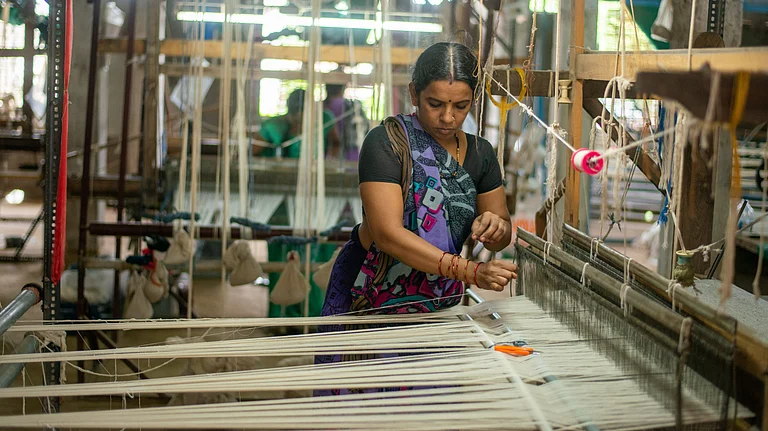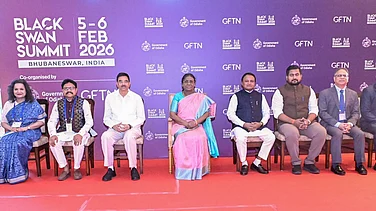Micro, Small and Medium Enterprises are a critical part of the economic backbone of India. They account for approximately 30 per cent of the Gross Value Added in the GDP and 36 per cent of manufacturing output. The share of export of MSME specified products in all India exports is around 44 per cent. More than 4 crore MSMEs are registered in the Government’s Udyam portal. MSMEs tend to be more labour-intensive than large enterprises and hence are key to providing employment opportunities to India’s workforce.
MSMEs face significant challenges including remaining competitive, keeping abreast of changing technology and attracting and retaining skilled talent. However, on a day-to-day basis, their biggest challenge is ensuring that they have access to finance at reasonable rates.
Budget 2024 has responded to this challenge through multiple measures. By increasing the limit for Mudra loans from Rs.10 lakhs to 20 lakhs for those enterprises who have a good track record of repaying earlier loans, the government has made more funding available to growth-oriented enterprises as well as given an incentive to those who have demonstrated responsible financial management. By tweaking the threshold for mandatory participation of buyers in the Trade Receivable Discounting System (TReDS), the budget is bringing more buyers onto an important platform that enables MSME sellers to get quick credit for their goods sold. Recognising that markets are volatile and that MSMEs need support to be more resilient, the Budget has also announced a new method to assess MSME’s credit needs, a new Credit Guarantee Scheme, an Emergency Credit Line Guarantee Scheme and a new mechanism to ensure continuation of bank credit during times of financial stress.
The Budget reiterates the Government’s intention to create a Rs. 1 lakh crore fund to provide interest-free, long-term loans for impactful R&D projects in industry. Given Indian industry’s relatively low investment in R&D and technology development and the growing technological intensity of all businesses, this is an important step towards the long-term competitiveness of Indian industry. Specifically for MSMEs, this should be an excellent opportunity for the more innovative among them to re-discover their technological mojo.
But in my view, the potentially most impactful dimensions of the budget from an MSME perspective are the initiatives pertaining to skilling and employment generation. Historically, Government has tended to directly incentivize capital investment but not the creation of jobs. Yet, it is clear that a major challenge in India is providing good jobs to millions of youth. The announcement of a subsidy towards the employer’s and employee’s PF contribution for first-time employees, a one-month wage to all first-time employees in all sectors registered with the EPFO through Direct Benefit Transfer (DBT), and the scheme to support internship opportunities for 20 lakh youth with a monthly stipend of Rs. 5,000 are fairly direct interventions in the labour market. There is also a plan to upgrade 1,000 Industrial Training Institutes (ITIs). If implemented effectively, these schemes should enhance the pool of qualified and skilled manpower in the economy and have a positive impact on the access of MSMEs to skilled manpower.
All the above measures seem well thought out. Of course, the effectiveness of Government schemes often lies in the details of execution, but assuming that there are no hidden surprises, these steps should help the MSME sector in general. The only caveat would be that close to 98% of the registered MSMEs are micro enterprises (investment of less than 1 Crore and turnover of less than 5 Crores), and historically micro enterprises have faced challenges in accessing government schemes because of their limited managerial bandwidth.
However, some changes in the broader ecosystem may be required for these interventions to be successful. Anecdotally, I have heard that many youngsters don’t want to join ITIs as factory jobs are not seen as aspirational and the effort-to-reward ratio is not seen as favourable. Further, there is still a societal premium on being a “graduate.” This problem has already been recognised, and is intended to be addressed through the new National Curriculum Framework which integrates vocational education with the higher education system. But, there is a need to translate this framework into reality quickly so that societal preferences and the needs of the economy and individuals are well-aligned. This needs to be accompanied by a social campaign using iconic personalities to raise the value and stature of shopfloor roles.
Further, companies will need to structure, strengthen and scale-up their internal internship programmes if the internship support initiative of the Budget is to be fruitful for both the organisation and the individual. The decline in the quality of the factory apprenticeship system over the years suggests that this needs focused attention. In the absence of a rigorous design, the internships run the risk of losing their learning value.
(The views expressed here are personal).


























